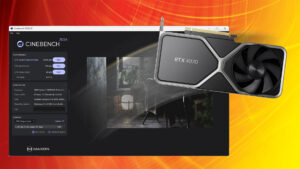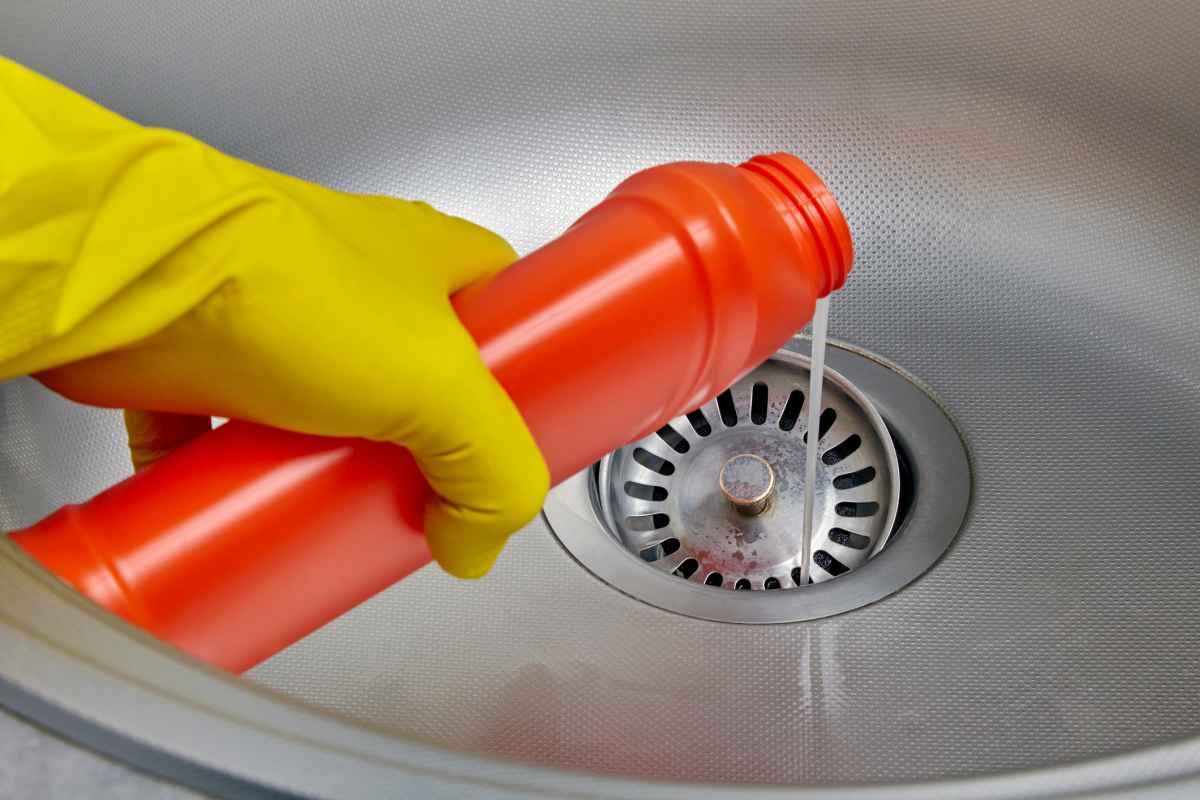
Cinebench is a special tool that helps us see how well our computers are working. When you run Cinebench, it puts your computer to the test by making it do lots of tasks quickly. This way, you can find out if your computer is fast or slow.
Using Cinebench is easy and fun! It checks different parts of your computer, like the processor and graphics card. After running the test, Cinebench gives you a score that shows how powerful your computer is. This score helps you decide if you need an upgrade or if your computer is just right for you.
What Is Cinebench

Cinebench is a tool that helps check how powerful your computer is. It’s like a test that makes your computer work really hard for a short time. This helps you see how well your computer’s processor and graphics card are working.
When you use Cinebench, it runs different kinds of tests to check your computer’s performance. It’s a great way to find out if your computer can handle heavy tasks like gaming or video editing. By using Cinebench, you can understand more about how your computer works.
At the end of the test, Cinebench gives you a score. This score shows you how well your computer did during the test. A higher score means your computer is faster and more powerful. Knowing this helps you make better decisions about upgrading your computer.
How Does Cinebench Test Your Computer
Cinebench tests your computer by running special programs that push its limits. These tests are designed to make your computer’s processor and graphics card work hard. This helps to see how well these parts can handle different tasks.
During the test, Cinebench measures how quickly your computer can complete each task. It also checks how well your computer can handle many tasks at once. The results give you a clear idea of your computer’s performance.
After the test, Cinebench shows you a score that represents your computer’s speed and efficiency. This score is useful for comparing your computer with others. It also helps you understand if your computer is ready for more demanding tasks.
Why Is Cinebench Important for Gamers
Cinebench is important for gamers because it helps check if their computer can handle new games. Games often need powerful processors and graphics cards to run smoothly. By using Cinebench, gamers can see if their computer meets these needs.
Running Cinebench helps gamers understand how well their computer can handle game graphics and performance. If the score is high, it means the computer is good for gaming. A lower score might mean that the computer needs upgrades to keep up with new games.
Cinebench can help gamers decide if they need to buy new hardware. It shows if parts like the processor or graphics card need improvement. This way, gamers can enjoy their games without any lag or slowdowns.
How to Run a Cinebench Test on Your PC
Running a Cinebench test on your PC is simple and easy. First, you need to download and install the Cinebench software from its official website. Once you have it installed, open the program to start the test.
When Cinebench opens, you’ll see options for different tests. Choose the one that suits your needs, like the CPU or GPU test. Click the start button to begin the test, and let Cinebench do its work. The program will run various tests and show you the results.
After the test is complete, you’ll see a score on your screen. This score tells you how well your PC performed during the test. Use this information to see if your computer needs any upgrades or improvements.
Understanding Cinebench Scores
Cinebench scores are numbers that show how well your computer did in the test. A higher score means your computer is fast and powerful. A lower score means your computer might not be as strong.
To understand your score, compare it with other computers or benchmarks. This helps you see where your computer stands. For example, if your score is higher than average, your computer is doing great.
Scores can also help you decide if you need to upgrade parts of your computer. If your score is low, it might be time to get a new processor or graphics card. This way, you can improve your computer’s performance.
Cinebench vs. Other Benchmark Tools
Cinebench is just one of many tools used to test computer performance. Other tools might test different parts of your computer or use different methods. Comparing Cinebench with these tools can help you get a complete picture of your computer’s abilities.
Each benchmark tool has its own way of testing and scoring. Cinebench focuses on processors and graphics cards, while other tools might test memory or storage. Choosing the right tool depends on what you want to measure.
Using multiple tools can give you more detailed information about your computer. This way, you can see how different parts of your computer are performing and make better decisions about upgrades.
What Can You Do with Your Cinebench Score
Your Cinebench score is useful for many things. You can use it to see if your computer is powerful enough for certain tasks. For example, a high score means your computer can handle games or video editing well.
You can also use your score to compare with other computers. This helps you see if your computer is faster or slower than others. If you’re thinking about upgrading, a Cinebench score can help you decide what parts need to be improved.
keeping track of your Cinebench scores over time can show how your computer’s performance changes. This information can help you plan for future upgrades and keep your computer running smoothly.
Common Problems with Cinebench and How to Fix Them
Sometimes, you might face problems while using Cinebench. One common issue is that the test doesn’t start or crashes. This can happen if your computer’s software or hardware isn’t compatible with Cinebench.
To fix this, make sure your computer meets the minimum requirements for Cinebench. Check for any updates or patches for the software. If the problem persists, you might need to reinstall Cinebench or check your computer’s hardware.
Another issue could be inaccurate scores. This might happen if your computer is running other programs during the test. To get the best results, close all other applications before running Cinebench. This helps ensure the test is accurate.
How Cinebench Helps You Choose Computer Upgrades
Cinebench can help you decide if you need to upgrade your computer’s parts. By looking at your Cinebench score, you can see if your processor or graphics card needs improvement. A low score might mean it’s time for a new part.
When you know which parts are weak, you can choose the best upgrades. For example, if your graphics card is causing a low score, consider getting a new one. This way, you can boost your computer’s performance and enjoy better results.
Cinebench also helps you compare different upgrade options. By running the test before and after upgrades, you can see how much better your computer performs. This makes it easier to choose the right upgrades for your needs.
Cinebench for Beginners: Getting Started
If you’re new to Cinebench, getting started is easy. First, download the software from the official website. Install it on your computer and open it to begin the setup process.
Once Cinebench is installed, you can choose which tests to run. For beginners, starting with the basic tests is a good idea. These tests will help you understand how your computer performs without being too complicated.
Running the tests is simple. Just click the start button and wait for the results. Cinebench will give you a score that shows your computer’s performance. Use this information to learn more about your computer and how it works.
How Often Should You Use Cinebench
Using Cinebench regularly is a good idea to keep track of your computer’s performance. You don’t need to run the test every day, but checking it every few months can help you spot any changes or issues.
Running Cinebench before and after installing new software or hardware can also be helpful. This shows you how the changes affect your computer’s performance. It’s a great way to make sure everything is working as expected.
If you’re planning to upgrade your computer, using Cinebench before and after the upgrade can show you the improvement. This helps you see if the new parts are making a difference.
Top Tips for Getting the Best Results from Cinebench
To get the best results from Cinebench, make sure your computer is ready for the test. Close all other programs to ensure nothing slows down the test. This helps Cinebench measure your computer’s performance accurately.
Another tip is to run the test multiple times. Doing this can give you a better idea of your computer’s average performance. Sometimes, results can vary, so running the test more than once helps get a clear picture.
keep your computer’s drivers and software up to date. This ensures that Cinebench runs smoothly and gives accurate results. Regular updates help your computer perform its best during the test.
How to Compare Your Cinebench Scores with Others
Comparing your Cinebench scores with others helps you see how your computer stacks up. To do this, find a benchmark database or website where you can compare scores. These sites often have a list of scores from different computers.
When comparing scores, look for computers with similar hardware. For example, if you have a certain processor, check how other computers with the same processor score. This gives you a better idea of how your computer performs relative to others.
It’s also helpful to compare scores from the same Cinebench version. Different versions might give different results, so make sure you’re looking at scores from the same version you used. This ensures that your comparison is accurate.
If your score is lower than expected, you might need to upgrade some parts. Compare your score with higher scores to see what upgrades could help. For example, if your score is lower than a computer with a better graphics card, you might consider upgrading yours.
How Cinebench Can Help You Optimize Your Computer

Cinebench is a great tool for optimizing your computer’s performance. Running the test can show you which parts of your computer are not performing well. This information helps you decide what upgrades or changes are needed.
After running Cinebench, look at the score and compare it with the recommended scores for your tasks. If your score is lower than needed, it’s time to think about improvements. For example, a low score might mean you need a better processor or more RAM.
Also, use Cinebench to check if your computer’s cooling system is working well. A drop in performance during the test could indicate that your computer is overheating. Make sure your cooling system is clean and functioning properly to keep your computer running smoothly.
Regularly running Cinebench can help you track your computer’s performance over time. This helps you spot any gradual declines and address them before they become bigger problems. Keeping your computer optimized ensures it performs well for all your needs.
How Cinebench Tests Your Computer’s Graphics Performance
Cinebench tests your computer’s graphics performance by running tasks that push your graphics card to its limits. This helps you see how well your graphics card handles high-quality images and animations.
During the test, Cinebench will run scenes that are very detailed and complex. This helps to measure how well your graphics card can render these scenes. A higher score indicates that your graphics card is strong and can handle demanding tasks.
If your graphics performance is lower than expected, it might be time to upgrade your graphics card. Comparing your Cinebench scores with those of computers with different graphics cards can help you decide if an upgrade is necessary.
Good graphics performance is important for gaming and video editing. By using Cinebench, you can ensure that your graphics card is up to the task and that your computer will run smoothly for all your graphics-heavy activities.
What to Do If Your Cinebench Test Results Are Low
If your Cinebench test results are lower than you expected, don’t worry. There are several things you can do to improve your computer’s performance. First, make sure your computer is free of dust and debris. Dust can cause overheating, which affects performance.
Next, check if your computer’s drivers and software are up to date. Sometimes, outdated drivers can cause lower performance scores. Updating your drivers can improve your computer’s performance and potentially raise your Cinebench score.
Another step is to close all other programs while running the test. Background applications can use up resources and lower your Cinebench score. Make sure to close any unnecessary programs before running the test for the most accurate results.
If these steps don’t help, you might need to consider hardware upgrades. Upgrading components like your processor or graphics card can improve your performance and give you a better Cinebench score.
Why You Should Run Cinebench Before Buying New Computer Parts
Running Cinebench before buying new computer parts is a smart idea. It helps you understand the current performance of your computer and see what needs improvement. This way, you can choose the right parts that will make the biggest difference.
By testing your computer with Cinebench, you get a baseline score that shows how well your current parts are performing. When you look at new parts, you can compare their performance to your current setup. This helps you make sure the new parts will give you a noticeable improvement.
Cinebench can also help you avoid buying parts that won’t make a big difference. For example, if your current score is already high, you might not need a major upgrade. Instead, you could focus on parts that will enhance your computer in areas where it’s lacking.
Testing with Cinebench before buying new parts ensures that you make informed decisions and get the best value for your money. It helps you improve your computer’s performance in the most effective way.
How Cinebench Helps in Overclocking Your Computer
Cinebench is a useful tool for overclocking your computer. Overclocking means making your computer’s components work faster than their standard speeds. Cinebench helps you see how well your computer handles these changes.
To overclock your computer, you need to increase the speed of your processor or graphics card. Running Cinebench before and after overclocking can show you how these changes affect performance. This helps you ensure that your overclocking efforts are successful.
Keep an eye on your Cinebench scores while overclocking. If the scores improve, it means your overclocking is working. However, if the scores drop or your computer has issues, you might need to adjust the settings or revert to the original speeds.
Overclocking can give you a boost in performance, but it also increases the risk of overheating and instability. Using Cinebench to monitor these changes helps you balance performance gains with the risks involved.
How to Use Cinebench for Your Next Computer Build
Using Cinebench for your next computer build is a great way to ensure you get the best performance. Before building your computer, run Cinebench on your current setup to see how well your components perform. This gives you a benchmark to aim for with your new build.
During your build, choose parts that will improve your Cinebench score. For example, if your current score is low due to an old processor, select a new processor that will boost your performance. Using Cinebench helps you make choices that will give you the best results.
After building your new computer, run Cinebench again to test its performance. Compare the new scores with your old ones to see how much improvement you’ve made. This helps you verify that your new build meets your performance goals.
Running Cinebench before and after your build ensures that you make informed decisions and achieve the best performance possible with your new computer.
How to Interpret Cinebench Results for Different Tasks
Interpreting Cinebench results for different tasks helps you understand how well your computer performs in various scenarios. Cinebench tests different parts of your computer, so knowing what the scores mean for specific tasks is important.
A high Cinebench score generally means your computer is good at handling demanding tasks like gaming or video editing. If you’re using your computer for these tasks, a high score indicates that it should perform well.
For everyday tasks like web browsing or word processing, a lower score might still be acceptable. Understanding how your Cinebench score relates to your tasks helps you determine if your computer is suitable for your needs.
By interpreting your Cinebench results, you can make better decisions about upgrades and adjustments. This ensures your computer performs well for all the tasks you use it for.
The Benefits of Regularly Using Cinebench for Performance Monitoring
Regularly using Cinebench for performance monitoring offers several benefits. It helps you keep track of your computer’s performance over time and spot any issues before they become serious. Regular testing can also help you understand how upgrades or changes affect your system.
By running Cinebench at regular intervals, you can monitor your computer’s performance and see if it’s improving or declining. This helps you maintain optimal performance and address any problems early.
Regular performance monitoring with Cinebench also helps you plan for future upgrades. If you notice a decline in your scores, it might be time to consider upgrading parts of your computer. Keeping track of your performance ensures you make timely decisions about improvements.
How to Set Up Cinebench for Accurate Testing

Setting up Cinebench correctly is important for accurate testing. Start by downloading the latest version of Cinebench from the official website. Install the software and make sure your computer meets the minimum requirements for running the test.
Before starting the test, close all other applications. This ensures that Cinebench can measure your computer’s performance without interference. Background programs can use resources and affect the accuracy of the results.
Choose the right test options based on what you want to measure. For example, select the CPU test if you want to check your processor’s performance. After selecting the test, click start and let Cinebench complete the process.
Following these steps helps you get accurate and reliable results from Cinebench. Proper setup ensures that you can confidently interpret your scores and make informed decisions about your computer’s performance.
Conclusion
Using Cinebench is a smart way to check how well your computer is performing. By running Cinebench tests, you can see if your computer’s parts are working as they should and if any upgrades are needed. It’s like a health check for your computer to make sure everything is running smoothly.
Regularly testing with Cinebench helps you keep track of your computer’s performance over time. This way, you can fix problems before they get bigger and ensure your computer stays fast and reliable. So, make sure to use Cinebench and keep your computer in top shape!





